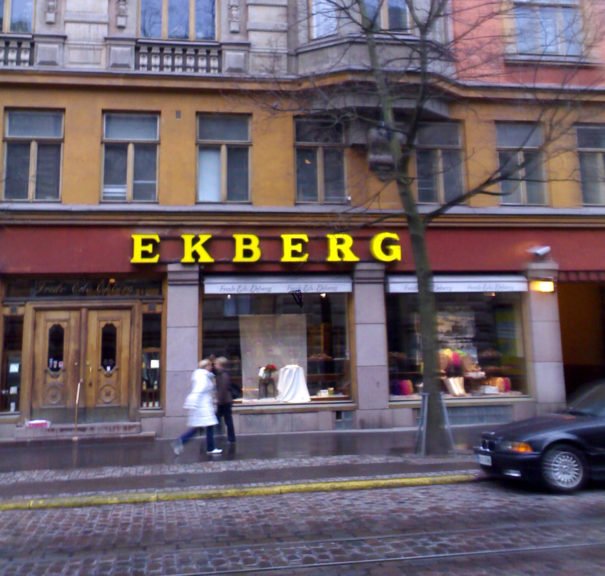
London Excels at Overpriced Brunches But Sucks at Breakfasts

London Excels at Overpriced Brunches But Sucks at Breakfasts
Breakfast buffet in Helsinki
It’s 8:30 a.m. Bulevardi Street is covered in icy slush, and the city is smothered by thick darkness. A nasty wind blows from the Baltic Sea. Winter mornings at these latitudes have no mercy.
I open the café door to my grandma, Inger. We’ve come for breakfast at Ekberg, one of the most prestigious, old-school coffee houses in Helsinki.
I’m in town only for a short visit from London, my current home. Grandma still takes it a little bit personally. Why did you move so far away, she always asks. What does London offer that Helsinki doesn’t?
I needed an adventure, I always reply. Right now, London has everything. But
I’ll move back one day, soon, I promise. I don’t have the heart to tell her that she probably won’t see that day come.
Ekberg is nearly empty, thus we get a window table—not that you can see much outside. Inger carefully removes her mink fur and leather gloves. She’s 87, but her style remains impeccable. Hair like a lion’s mane, bag and shoes always matching.
A waiter brings us two menus. I opt for the breakfast buffet. ‘Buffet’ has a somewhat dodgy reputation in Britain—something to do with cheap Chinese restaurants and their stale lunch offerings, I was once told. The Nordics beg to differ. Buffets are popular, especially at breakfast and brunch, and delicious. Finns, and many Swedes, have nostalgic childhood memories of the glorious, banquet-like buffets served on the ferries between Helsinki and Stockholm.
I start with creamy porridge and herbal salt. Then comes plain rye bread, raw vegetables, gravlax and two hardboiled eggs—again, with herbal salt.
Anywhere else, I’d order an Americano. Here I pour myself weak filter coffee.
London might excel at overpriced brunches, but it sucks at breakfasts. Fluffy pastry is as useless as an umbrella in a tornado. Toast with Nutella should only excite a toddler. And don’t even get me started on the pride of the nation, the artery-clogging institution called the Full English.
Inger nibbles her croissant with some raspberry marmalade. I gently tease her about her continental eating habits, and nag, yet again, about her putting cream in her coffee. I’ve lived this long, I do what I want, she replies.
We chat mostly about times gone by. She tells me, once again, how she used to work for the Security Intelligence Service during the Cold War, spying on Russians. This always makes me happy: I have a grandma basically out of a Bond movie.
I fetch a second pile of the warm, pitch-black rye bread and slices of cucumber. Inger looks at the plate approvingly. If there’s one thing that unites grandparents around the world, it’s the joy over their grandchildren’s appetite. We chat about books, politics, and Helsinki’s current art exhibitions.
Ekberg has slowly filled up: Swedish-speaking ladies of leisure, bohemian middle-aged men, philosophy students, Italian tourists. The clonk of the tram, Helsinki’s constant soundtrack, is now frequent. An orange light finally dawns behind the art nouveau-style buildings.
For a moment, I wish I could freeze time.